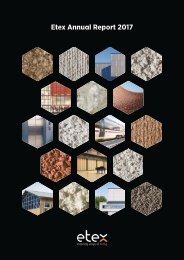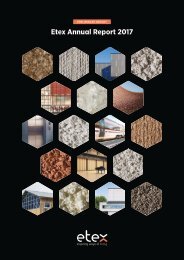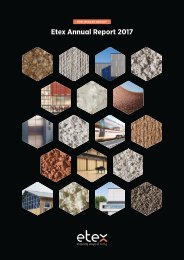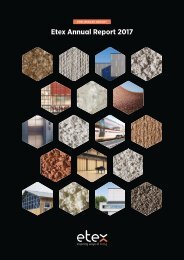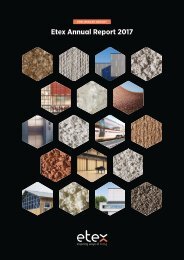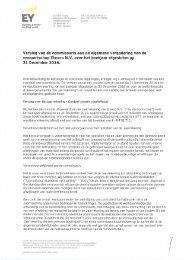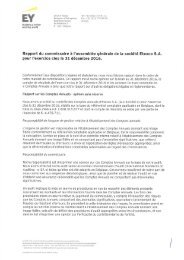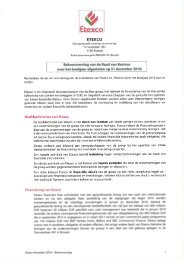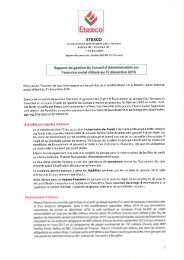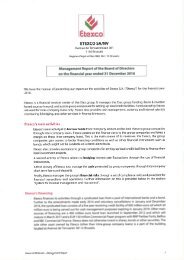ETX-10829_Etex-AR2017_WEB_2018_DEF2 (2)
Create successful ePaper yourself
Turn your PDF publications into a flip-book with our unique Google optimized e-Paper software.
1.5<br />
About <strong>Etex</strong><br />
Megatrends<br />
<strong>Etex</strong> Annual Report 2017<br />
About <strong>Etex</strong><br />
Megatrends<br />
Megatrends<br />
1<br />
Rapid urbanisation<br />
How four<br />
megatrends are<br />
reshaping the<br />
construction industry<br />
An increasing number of people are<br />
moving to live and work in urban areas.<br />
People want affordable, quality housing<br />
and the accompanying infrastructure that<br />
supports their way of life. Ageing cities<br />
in developed countries are strained by<br />
the higher population density and need<br />
upgrades. Energy-efficient, space-saving<br />
and sustainable materials are needed<br />
to assure that old buildings can cope<br />
with modern requirements. Meanwhile,<br />
emerging countries cannot build fast<br />
enough to keep up with demand. They turn<br />
towards dry construction, modular and<br />
prefabricated building solutions that are<br />
quick and easy to construct and meet the<br />
surging demand at an affordable expense.<br />
3<br />
Disruptive technology<br />
Disruptive technology is changing the way businesses<br />
operate in industries across the globe. In the world of<br />
construction, they are driving process innovation to<br />
reshape how buildings are designed and constructed. One<br />
example is BIM, short for building information modelling.<br />
This technology facilitates collaboration throughout the<br />
building cycle from conception to demolition.<br />
Furthermore, automation and robotics will speed up<br />
production and enhance quality assurance. While<br />
innovation will build smart cities where energy is<br />
harnessed through solar panels and conserved via highperformance<br />
insulation materials.<br />
2<br />
Climate change and<br />
resource scarcity<br />
Human activity is depleting our planet’s resources<br />
at an alarming rate. The construction industry is the<br />
number one global consumer of raw materials. In<br />
addition, buildings are responsible for 30% of global<br />
greenhouse gases. Significant changes in the way<br />
we work are crucial to curb our drain on resources<br />
and reduce emissions. Construction projects should<br />
consider a building’s complete life cycle—not just<br />
building costs. More efficient use and recycling of<br />
raw materials must evolve towards cradle-to-cradle<br />
solutions. Industrial processes must be optimised to<br />
ensure lean production.<br />
4<br />
Sharing global responsibility<br />
Social responsibility is high on the agenda worldwide.<br />
Companies must demonstrate they are committed to<br />
responsible, safe and sustainable business practices.<br />
They must also recognise the effect these have on their<br />
employees, customers and the communities in which they<br />
operate. Success is measured not just by profit but by<br />
making a positive and lasting impact. A company that acts<br />
responsibly in a transparent way is one that is trusted by its<br />
stakeholders and will assure a stable future.<br />
22 23



